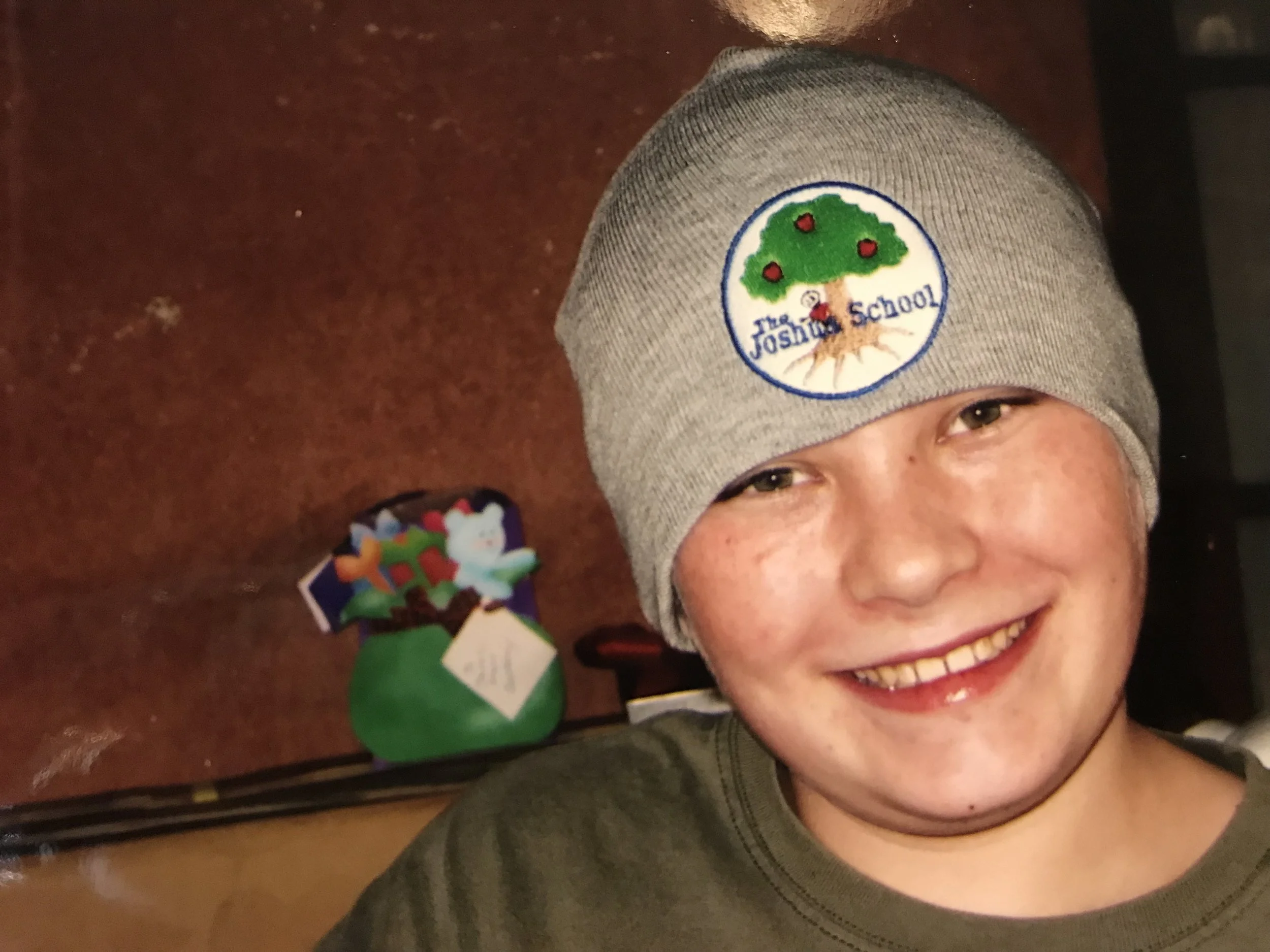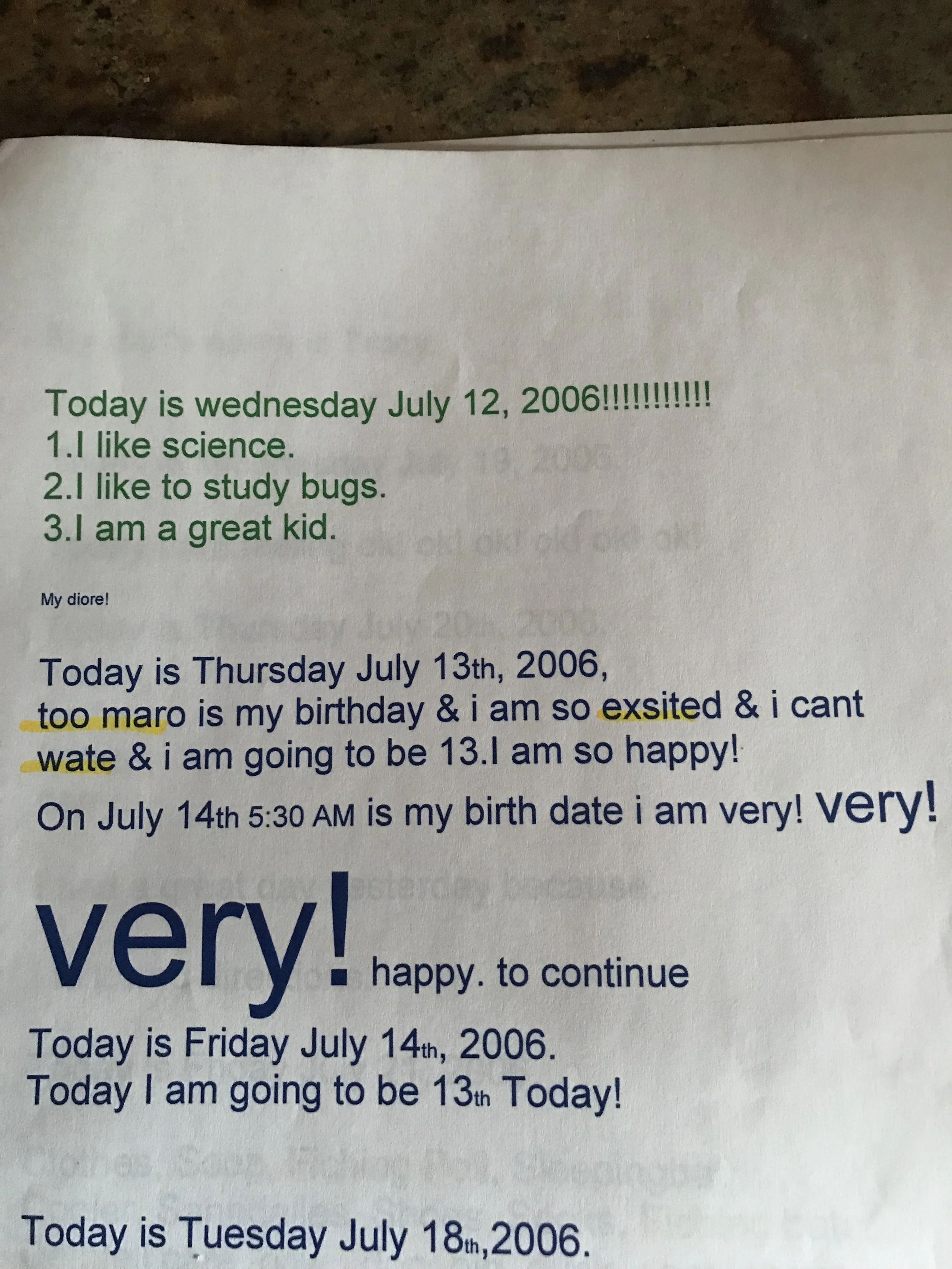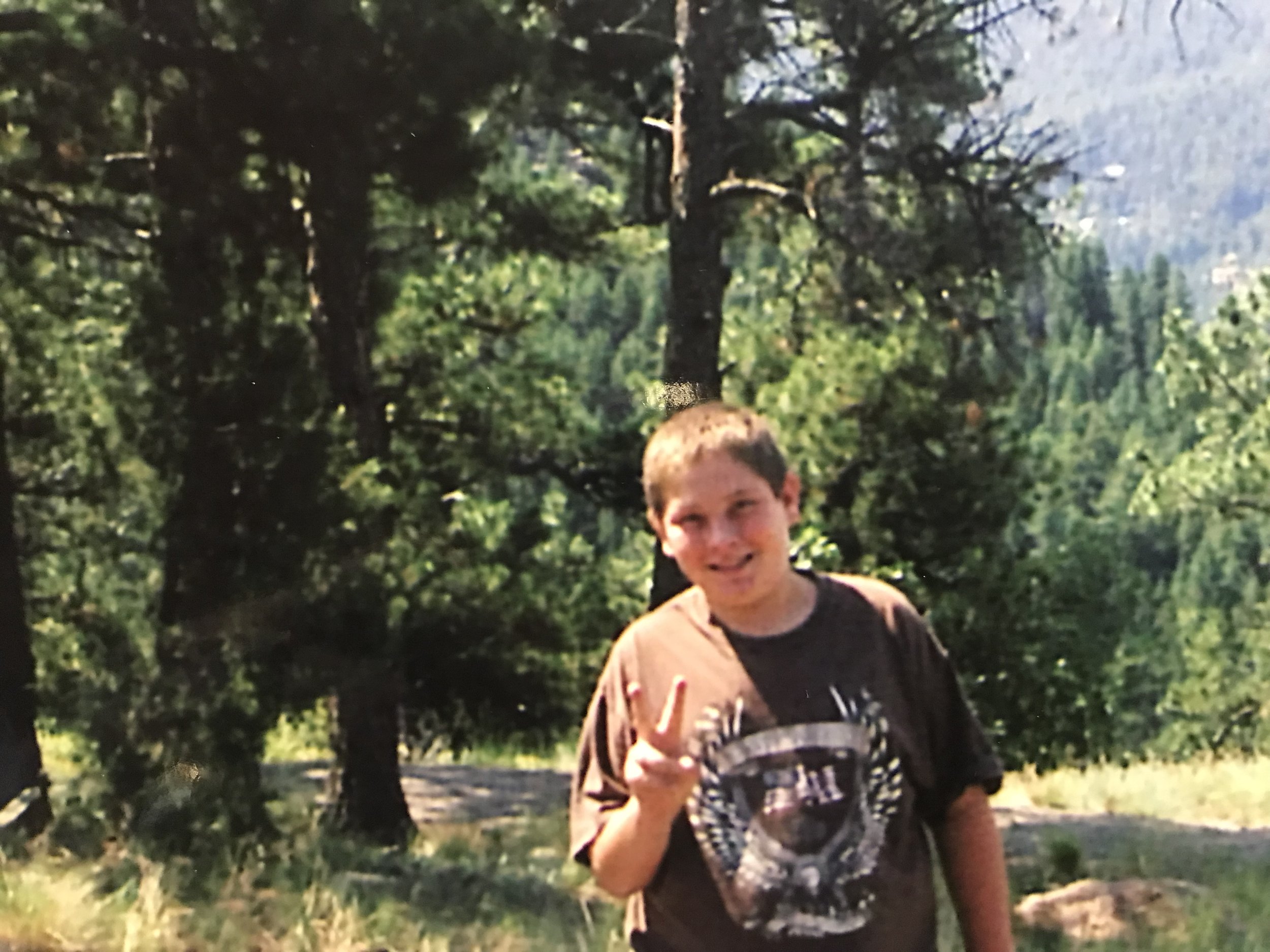Not a Moment too Soon
When one door closes another door opens. We were saddened to learn that the school we found for Travis was unable to keep their doors open. But this forced us to find another setting.
All I can say is that we were very lucky to find The Joshua School (TJS). I had heard the director of TJS do an interview on Colorado Matters, a program on Colorado Public Radio. And our timing was perfect. During the interview the director said that although the school’s plan was to serve students through age twenty-one, they required students to be twelve or under upon acceptance.
It was a bit disheartening to hear his explanation of why they came up with the cut off at age twelve. He talked about early intervention being the best hope of growth in students on the autism spectrum. So basically the earlier you use proper strategies to help these kiddos the better the result. So if diagnosed early, they believe that they can make great gains in possibly getting these children back into their school district settings.
Beyond age twelve the director believed the child would have participated in too much poor programming. That past a certain point it would be too hard a road to come back from. It would be too much for the school to handle.
Travis turned thirteen just a few short weeks after his acceptance into their program.
If you have been following our story you can imagine how difficult it was for me to hear that it may be hard for TJS to help Travis come back from the road he had traveled. A road that we argued was going in the wrong direction early on.
And as always, even today, I wonder if things might have been different for Travis if he had received the proper diagnosis earlier. I know that thinking along those lines is a waste of time and emotional energy, but I am human and cannot keep myself from going to that place.
And that is one of my reasons for writing this blog. Maybe reading our story in some way helps someone else with their story, available resources and their decision making process.
Or maybe it helps the reader to better understand my no-nonsense attitude now. When it comes to advocating for my child, I want his providers to get it right. I keep a watchful eye. And I hope his current providers get that my goal is for them to learn from their mistakes and do better next time. Nobody is perfect. But remember an individual’s life is in your care. Always be mindful of the effect comments and actions can have on those you provide for.
TJS had just finished their first year open when we found them. The History portion of their brochure states, “In 2002. a team of special educators came together to discuss how to better serve children with autism and special needs. With nine years of teaching experience in the public schools, the group determined that a private school designed specifically for children with autism and developmental disabilities would more effectively meet students’ and families’ educational and personal needs. Over time, the team grew to incorporate other professionals in the community to support this project and expand the school’s services. After years of planning and preparation, The Joshua School opened its doors in August 2005.”
And not a moment too soon for our family!
In November of 2005 The Joshua School became the first school in Colorado designed specifically for children with autism and developmental disabilities to be approved by the Colorado Department of Education. This approval allowed public institutions to refer children and students whom required the services provided at the Joshua School.
Because of this approval our district was able to refer Travis to this setting at our request.
Within just a few weeks I received a note from the school regarding Travis’s behavior. He did not want to participate in group. When the teacher asked all of the students to stand up, Travis remained sitting. When the teacher asked him to stand up, he said that he did not feel like it. The teacher took a penny. The teacher asked him again. He stood up and pushed his chair back with force. The teacher took another penny. Travis started to yell and scream. The teacher took another penny. At this point his behavior escalated and he left the room.
Ultimately Travis and the teacher processed through this situation and came up with the idea of a break card that Travis can use to let the teacher know that he is agitated.
I cannot remember if the penny system was schoolwide, or just a classroom system. The kiddos would start off with five pennies, and if they had a certain amount of pennies left by midday they were able to pick an item out of the prize basket.
After receiving this note, and many more about the loss of pennies I knew that this system would not work for Travis. As he lost each penny he became more agitated. And this system would leave the door open for arguments. I could see Travis saying, “I was just starting to raise my hand, you must not have seen me”.
So I suggested to the school that they start Travis with zero pennies at the start of the day. And each time they caught him doing something right to reward him with a penny. And I asked them to over exaggerate their excitement when he did. Call out with excitement, “Mr. Kastle, you raised your hand and waited to be called on before speaking, YOU SIR have just earned yourself a penny!!”
I thought that this may work better for his needs. And do you know what the staff said. They said yes. That makes sense. In fact that way may work better for the other students as well.
I knew in that moment that this school could be the right fit for Travis. Because even with all of their expert training, they listened to a parent and agreed to give their advice a try. Because parents know their children best.
In July 2006, 5280 magazine named the staff of The Joshua School as the winners of the “Unsung Heroes” category in their Top of the Town issue.
Shortly after Travis began school at TJS the students braved their first annual camping trip in Keystone. Per their newsletter, “Three days of swimming, hiking, boating, hot dogs and s’mores (Prepared specifically for special diets) made for lots of special memories and opportunities for building friendships. When asked which one thing was their favorite activity, the students’ responses were almost unanimous: All of it!”
What was my favorite part? Three days of respite!
I knew Travis was in good hands.
As I look back at the directory I recall that Travis was one of nine total students. At a school in it’s second year. With a lot to prove. I knew they would do whatever was in their power to help Travis to get back on track.
One of the things they began with him right away was a daily journal that he would type a message in. I was excited that he was learning to type. His handwriting was slow and labored. He would completely lose interest before he even wrote one complete sentence.
TJS reworked Travis’s IEP to better meet his needs.
Travis had two goals in the Self Awareness and Independence category:
Travis will increase his time on task to 20 minutes. His current baseline: 5 minutes.
Given pictures or situations, Travis will generate three different perspectives. His current baseline: one perspective. (I’m sure it’s his own!)
Travis had two goals in the Pre-Academics and Readiness category:
Travis will raise his hand in order to get help in the classroom and during group time. His current baseline: 25%
When given a familiar direction, Travis will follow the direction the first time he is asked. Baseline: 10%
Travis had one goal in the Play and Leisure category:
Travis will ask a peer what they would like to play and do that activity with them. Baseline: He does not ask peers what they want to play. (He has yet to master this goal!)
Travis had three goals in the Social Skills category:
When Travis is frustrated and unable to communicate appropriately about his frustrations, he will ask for “space”. Baseline: needs verbal reminders to ask for space.
When another classmate of teacher asks for space, Travis will stop talking and walk away. Baseline on the IEP is blank, but I’m sure that means he currently is not doing this.
When exposed to a contrary opinion, Travis will acknowledge that there is a difference of opinions. Baseline: has difficulty acknowledging opinions.
Travis has seven goals in the Academics (Reading, Writing and Spelling) category:
Given 7th grade vocabulary words, Travis will use them correctly in a sentence. (Vocabulary is a strength for Travis. He has always been good about asking me what a word means when he doesn’t know.) Baseline: Needs to learn 7th grade vocabulary.
Travis will learn three specific spelling rules: ai is a long sound (wait), a silent e at the end makes the vowel long (side), and dropping the e on words when adding ing (racing). Baseline: frequently misspells words with these spelling patterns.
Travis will recognize the second and third grade Dolch sight words. Baseline: struggles with sight words. (Travis has a great vocabulary but is unable to read beyond second grade at this point.)
Travis will read a list of decodable words at the third grade level. Baseline: needs verbal prompts with decoding.
After listening to a 7th grade passage, Travis will answer comprehension questions. Baseline: There isn’t anything written on his IEP here, but he is only able to focus on subjects that are of high interest to him at this time.
After reading a 3rd grade level passage, Travis will write or type the main idea, setting and characters. Baseline: needs help reading the passage and comprehending what he has read.
Travis will write or type a five sentence paragraph independently. Baseline: needs a lot of teacher support to organize his ideas into one paragraph.
Travis has four goals in the Academic (Math) category:
Travis will independently make change for values up to $10. Baseline: makes change for up to $1 and still needs some prompting.
Travis will follow a recipe using the correct measurements. No baseline.
Travis will increase his speed with basic addition and subtraction problems. Baseline: completes 15 problems in one minute (all addition or all subtraction).
Travis will complete simple story problems involving addition, subtraction, multiplication or division. Baseline: needs support from a teacher to determine method.
Travis has one goal in the Physical Motor category:
Travis will increase his typing speed by 50%. No baseline.
I wanted to share his new IEP goals with you for a couple of reasons.
First, I wanted you to know his starting point at TJS. My boy turned thirteen right after starting at TJS and is in the 7th grade. And this is where he is at behaviorally and academically.
And second, this IEP was developed by TJS in September of 2006. Travis had been attending for approximately three months when we had the IEP meeting. I was pleasantly surprised with how well they already knew Travis and how right they got his needs when developing his goals.
We are off to a great start!
“Be grateful for all of the closed doors, detours and roadblocks that prevented you from paths and places not meant for you and led you to something better.” - Author Unknown
Travis proudly wearing his new hat at his new school!
A sample of Travis’s work when he started school at TJS.
Hiking on first annual camping trip for TJS.
Travis is enjoying his trip to Keystone with TJS.
Boating on his camping trip with TJS.





